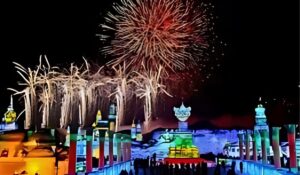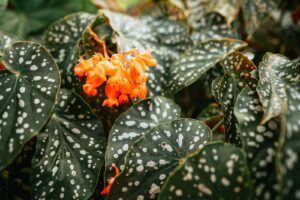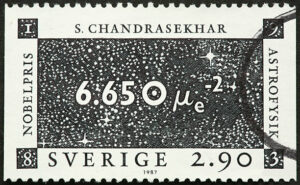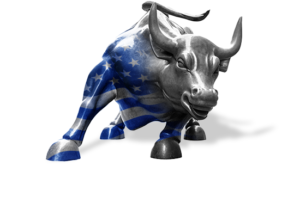Introduction
Awka Uro, often simply referred to as “Uro,” is a vibrant cultural tradition that originates from the Awka community in Anambra State, Nigeria. This annual festival is a significant event that showcases the rich cultural heritage, traditions, and history of the Igbo people. Awka, the capital of Anambra State, is renowned for its blacksmiths, and the Uro festival plays a pivotal role in preserving and celebrating this ancient craft and the broader cultural identity of the Awka people.
Historical Background
The history of Awka Uro dates back centuries and is deeply rooted in the mythology and traditions of the Awka people. According to oral traditions, the festival was established to honor the deities and ancestors who are believed to protect the community and ensure its prosperity. The festival is also linked to the agricultural cycle, marking the end of the farming season and the beginning of harvest celebrations.
The Significance of Uro
Awka Uro is more than just a festival; it is a cultural phenomenon that encompasses various aspects of the community’s life. It serves several key purposes:
- Cultural Preservation: The festival plays a crucial role in preserving the cultural heritage of the Awka people. Through songs, dances, rituals, and traditional attire, the community maintains a strong connection to its past.
- Social Cohesion: Uro brings together people from different walks of life, fostering a sense of unity and belonging. It provides an opportunity for individuals to reconnect with family and friends and for the community to strengthen its social bonds.
- Religious Observance: The festival has deep religious significance, involving various rites and ceremonies to honor the gods and ancestors. These rituals are believed to bring blessings, protection, and prosperity to the community.
- Economic Impact: Uro also has a significant economic dimension. The influx of visitors during the festival boosts local businesses, including markets, hotels, and transportation services. Artisans and craftsmen also benefit from the increased demand for traditional attire and artifacts.
The Uro Festival: A Week of Celebrations

The Uro festival typically spans a week and is marked by a series of events and activities that highlight the cultural richness of the Awka community. Each day of the festival has its unique significance and rituals:
Day 1: Opening Ceremony
The festival kicks off with an elaborate opening ceremony, often attended by dignitaries and prominent figures from the community and beyond. This day sets the tone for the rest of the festival, featuring speeches, traditional music, and dance performances.
Day 2: Cultural Displays
The second day is dedicated to showcasing the diverse cultural heritage of the Awka people. Traditional dances, masquerade performances, and music fill the air as different age groups and cultural troupes compete and perform. These displays are not only entertaining but also educational, providing insights into the history and traditions of the community.
Day 3: Blacksmithing Exhibitions
Given Awka’s reputation as a hub for blacksmithing, the third day is reserved for exhibitions of this ancient craft. Skilled blacksmiths demonstrate their expertise, creating intricate tools and artworks. This day is particularly important for highlighting the craftsmanship that has been passed down through generations and remains a vital part of Awka’s identity.
Day 4: Ancestral Worship
On the fourth day, the community engages in rituals and ceremonies to honor their ancestors. Offerings are made, and prayers are said at sacred shrines. This day is deeply spiritual, reinforcing the community’s connection to their lineage and the divine.
Day 5: Traditional Wrestling
Traditional wrestling matches are held on the fifth day, drawing large crowds and adding an element of excitement to the festival. Wrestling is a popular sport among the Igbo people, and the matches during Uro are highly anticipated events that showcase strength, skill, and sportsmanship.
Day 6: Agricultural Fair
The agricultural fair is a highlight of the Uro festival, celebrating the end of the farming season. Farmers bring their best produce to display and sell, and awards are given for outstanding agricultural achievements. This fair underscores the importance of agriculture to the community’s economy and sustenance.
Day 7: Closing Ceremony
The festival concludes with a grand closing ceremony that includes a procession, traditional music, and dances. It is a time for the community to reflect on the week’s events, give thanks for the blessings received, and look forward to the future.
The Role of Masquerades
Masquerades, known as “Mmanwu” in Igbo, are a central feature of the Uro festival. These masquerades are believed to represent ancestral spirits and are revered as sacred beings. During the festival, masqueraders don elaborate costumes and masks, performing dances and rituals that are both entertaining and spiritually significant. The masquerades are a reminder of the community’s connection to the spiritual realm and the importance of honoring their ancestors.
Impact on Modern Society
While Awka Uro is steeped in tradition, it has also adapted to modern times. The festival continues to thrive in the contemporary world, attracting not only locals but also tourists and researchers interested in African cultures. Efforts have been made to document and promote the festival through various media, ensuring that it remains relevant and accessible to future generations.
The festival also provides a platform for addressing contemporary issues facing the community. For example, topics such as environmental conservation, youth empowerment, and education are often highlighted during the festival. By integrating these modern concerns with traditional practices, Uro serves as a bridge between the past and the present, ensuring that the cultural heritage of the Awka people remains dynamic and responsive to change.
Challenges and Preservation Efforts
Despite its significance, the Uro festival faces several challenges. Urbanization, modernization, and globalization have led to changes in lifestyle and cultural practices. Younger generations, influenced by global culture, may not fully appreciate the importance of the festival. Additionally, economic pressures and the lure of urban migration can lead to a decline in participation and interest.
To address these challenges, various efforts have been made to preserve and promote the Uro festival. Cultural organizations, community leaders, and scholars are working together to document the festival’s history, rituals, and performances. Educational programs and workshops are being organized to teach younger generations about the importance of their cultural heritage. Furthermore, partnerships with tourism boards and cultural institutions are helping to attract visitors and generate interest in the festival.
Conclusion
The Awka Uro festival is a vibrant celebration of the rich cultural heritage of the Awka community. It embodies the values, traditions, and history of the Igbo people, providing a platform for cultural preservation, social cohesion, religious observance, and economic growth. Despite the challenges posed by modernization and globalization, the festival continues to thrive, adapting to contemporary times while maintaining its core essence.
Through the Uro festival, the Awka people reaffirm their identity, honor their ancestors, and celebrate their unique cultural heritage. It is a testament to the resilience and vibrancy of African cultures, offering a glimpse into the past while looking forward to the future. As efforts to preserve and promote the festival continue, Awka Uro remains a shining example of the enduring power of tradition and community in the face of change.







































